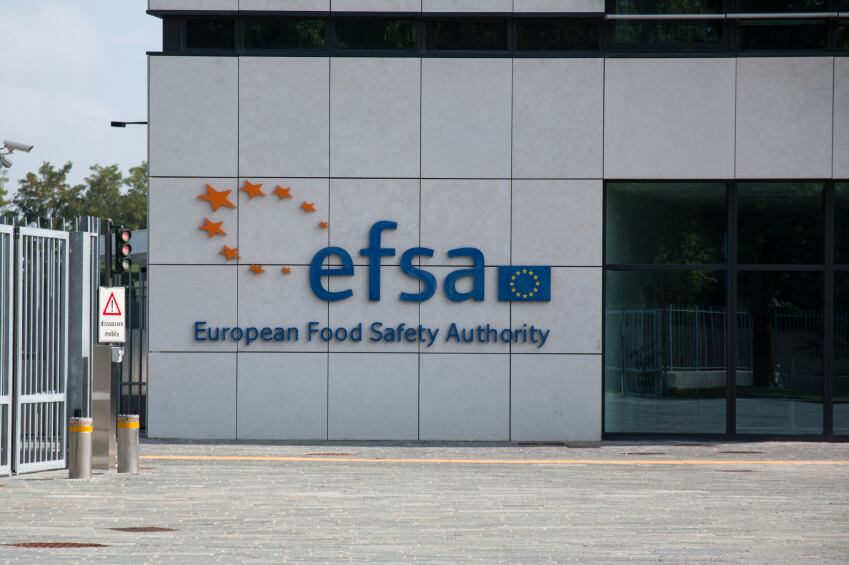The current European framework for health claims applications is unworkable, and in need of serious reforms, says Patrick Ahern, director general of EHPM – the European Federation of Associations of Health Product Manufacturers.
The group – which represents around 1,600 health-product manufacturers in 13 European countries – argues that EFSA’s refusals to discuss requirements for clinical evidence in pre-application meetings, and the lack of harmony between certain EFSA decisions and those of individual Member States show the need for reform by the European Commission.
“From when the regulation was adopted in 2006, up to now, there's been a very limited number of approvals,” Ahern told NutraIngredients.
“The actual number of approved claims is not really reflective of the reality, because when you consider the fact that all of the vitamins and minerals claims were approved automatically, without any clinical trials, you actually have a tiny number of claims that have been approved in the 12 years since the regulation was adopted.”
The EHPM director noted that a major reason for this is that, the requirements for a health claims dossier were not clear initially.
“There is a requirement for three clinical trials, but that only became apparent over time,” he said. “Then, from the moment it became apparent, even the people that invested the money and read all the guidance documents and tried to comply with the requirements, have struggled to tick all of the boxes for EFSA.”
“We think this is mainly down to a lack of proper dialogue between EFSA and between the applicants,” he said, noting that communication about requirements for evidence are vital to a good claims process.
“You can spend an awful lot of money on clinical trials, but if you can't design them properly – if you don't have the right amount of subjects, if they don't last long enough, if they feel that you haven't characterised the ingredient correctly - there's numerous ways through which something could be rejected.”

Ahern commented that the real issues seem to be in the processes involved.
“It's not a question of all of them [claims] being approved. Of course, not all of them should be approved because you need to have evidence,” he said. “But unless there's due process and unless people have confidence in investing the money then what you're going to see is that there are less and less investments. People just won't bother trying.”
The industry group leader also noted that EFSA does ‘a lot of good work’ in many other areas, but argued that the EU science agency is failing when it comes to the implementation of health claims regulations.
“To some extent, that's down to EFSA, but the European Commission created EFSA, it's a Commission creation and so the Commission is responsible for it,” he told us. “If there are flaws in the process, then it is up to the Commission to respond. And we don't think they've done that with their revision of the General Food Law.”
Double standards?
Ahern also pointed towards the apparent double standards between the process for EU health claims legislation and for EU medicines approval – where the European Medicine’s Agency (EMA) encourages innovation in the pharmaceutical sector and encourages companies in the sector to work constructively with EMA when preparing applications.
“For the food sector however, a totally opposite set of principles are applied with no rational explanation ever being offered for this double standard,” he said.
“If it's okay for a pharmaceutical company to have constructive dialogue with the European Medicines Agency, and have meetings when preparing an application, there's absolutely no justification for the same process not to be available to the food industry,” he said.
“Until such a process is created, the health claims regulation doesn't work.”
Ahern added that EFSA has previously stated that it feels that it doesn't have sufficient budget to be able to perform such duties.
“I don't think finance is really the issue here,” he said. “I think that EFSA just doesn't want to do that form of engagement, for whatever reason.”
Indeed, he noted that there is strong industry support for a pre-application meeting system which would see industry foot the costs by paying fees to EFSA – adding that companies that are considering spending upwards of €1.5 million on clinical trials for a claim would not be adverse to paying a fee to help prepare that application.
“Then, based on the outcome of that meeting, it becomes clear to you what requirements you need to comply with and what results you need to produce,” he said. “You can then assess yourself whether you're going to go forward and spend the money.”

He noted that EFSA has also stated that having the meetings would compromise integrity.
“We just can't understand that,” he said. “If that's the case then why is the EMA's integrity not compromised?”
Member States versus EFSA?
Ahern also noted that a number of Member States have disagreed with EFSA’s rulings relating to health claims.
He added that before the creation of EFSA in 2002, all health claims dealt with by national authorities.
“There are many contradictions produced by EFSA and pre-existing national assessments,” he said.
“Even now the Italian government has specific rules on the use of the term probiotic. There is an acceptance on the health effects of probiotics, but the Commission's approach ... and EFSA's approach so far, is that there is no health claim and there is no health benefit.”
This is where things become difficult for the Commission, according to Ahern, since there is a significant number of national authorities – both in Member States and internationally – that disagree with EFSA assessments.
“When you have a multitude of national authorities that have different opinions from EFSA, we do not think it acceptable that the European Commission automatically presumes that EFSA is right and the other national authorities are wrong,” he said.

